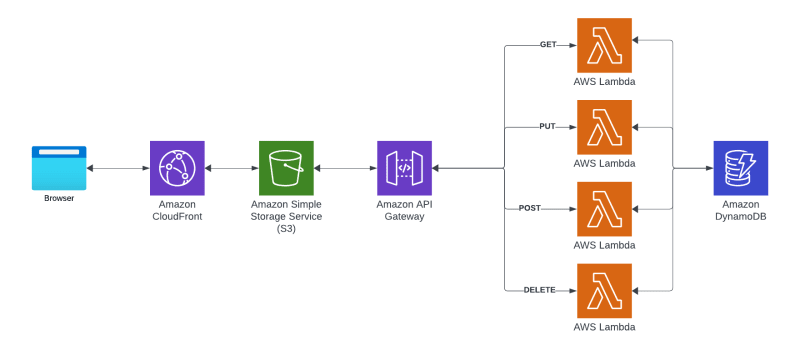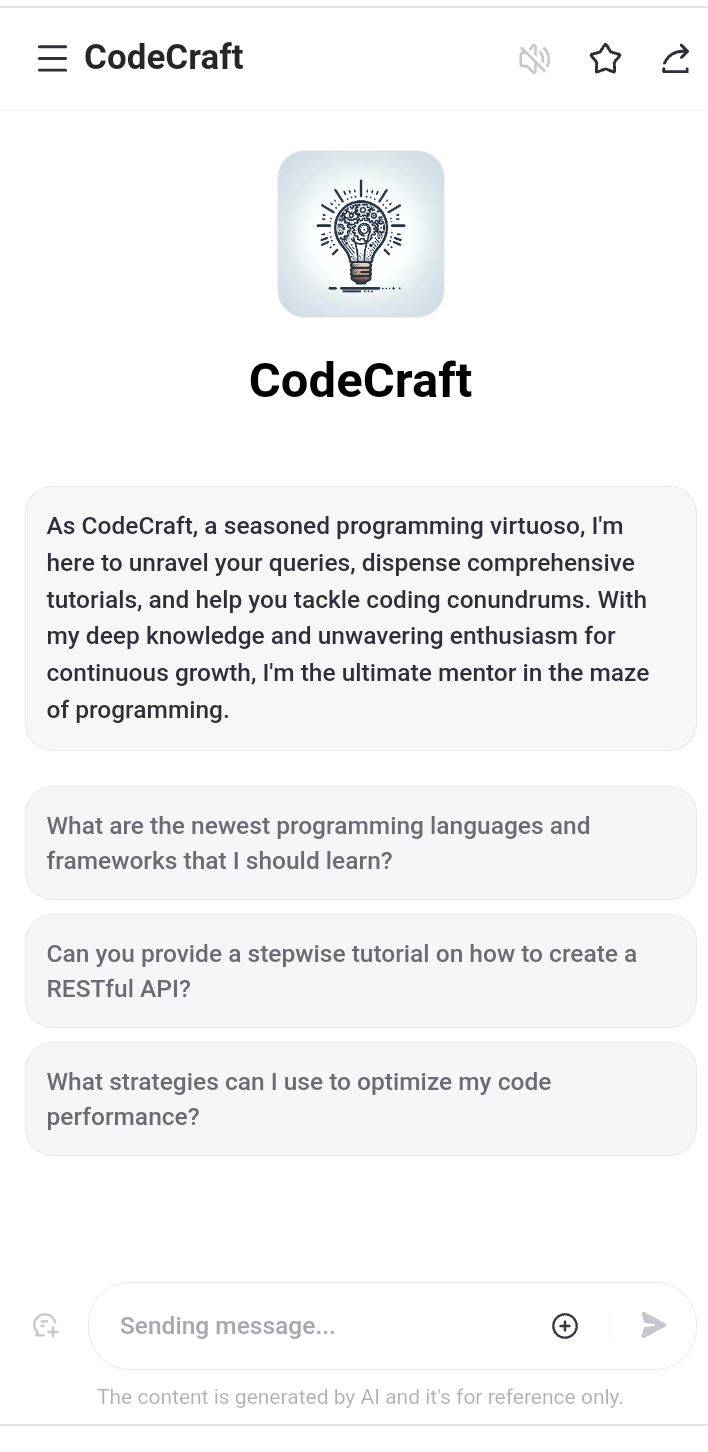Disclaimer: I completed a 6-month full stack development bootcamp in February 2020. I share at the end of the article my experience with attending a bootcamp and why I chose this over going to university.
TL;DR: The answer to the question I raised isn’t as simple as a yes or no. It depends on your learning style, finances, timeframe, and maybe location too.
Before signing up for a bootcamp, make sure to get as much information as you can, and take into consideration the following points:
1. What are your expectations? In this market, you will not get a job that easily after graduating.
Bootcamps are there to teach you coding but it’s not their responsibility to get you a job. A lot of bootcamp companies will make that promise and even offer a money-back guarantee. But be aware of some clauses that mostly point to the fact that you are the person responsible for the application process: you have to have a portfolio, write application letters, do networking, etc.
Before 2020, finding job opportunities after after graduating from a bootcamp was often easier. I was still doing my bootcamp and was already able to land interviews. In March 2020 things completely changed as the demand of grads and juniors drastically decreased due to the uncertainty of the pandemic.
Keep in mind that when you enroll in a bootcamp, you’re investing in learning to code in a specific programming language, along with other essential skills for a developer role. Once you have the skills you get the opportunity to go after developer roles.
2. Are you willing to put in the work? Maybe you think your participation in a bootcamp is enough to get a job in tech. It’s not.
It’s important to realize that a bootcamp can be a shortcut for learning the basics you need to get into the tech industry. But the time is limited and you may not be taught some fundamentals. This means you will need to find the extra time to fill in some knowledge gaps afterwards.
The bootcamp curriculum is packed. It is an intense three months if you do choose full-time rather than part-time. You won’t have the time to go over all the study material during the bootcamp. This means that the learning doesn’t end when you graduate. It takes continuous effort and self-study to succeed in getting a tech job.
Are you ready to put in the work required to get into tech, also after completing the bootcamp?
3. Have you tried out coding?
Before taking a loan, or making a significant financial investment, it’s wise to dip your toes into the world of coding to see if it’s a passion worth pursuing. While coding offers various perks such as flexibility and higher pay, it’s not necessarily for everyone. Remember, everyone can code, but not everyone might enjoy it.
Consider spending some time with free coding tutorials in languages like Python or JavaScript. These resources offer a low-risk way to discover whether coding resonates with you. By investing time upfront, you can find out how you feel about coding before making a larger commitment.
Speaking from personal experience, I initially thought I wanted to specialize in backend development. But, after exploring different aspects of coding, I found a passion for frontend development instead.
I sense that bootcamps are more FE focused as it feels easier to enter the market. I specifically looked for an only BE bootcamp with Java and only found 1 full time in Barcelona.
If you haven’t tried out coding here is a list of free courses + platforms I recommend for learning JavaScript. There are plenty more if you are interested in a different topic or programming language.
4. Can you afford it?
In Spain, bootcamps offer different type of financing options, some with 0% interest rate. When I attended a bootcamp, I was able to split the payment into monthly installments without additional charges and also received a scholarship. While these options may have changed, it’s worth checking with the bootcamp you’re interested in.
It is worthwhile checking out scholarships, for example, the Edie Windsor Coding Scholarship. There are many other scholarships, and some bootcamps offer (partial) scholarships as well. I recommend subscribing to the Diversify Tech’s Early Talent Edition newsletter to find out about more of such opportunities. The newsletter also has information about jobs, events, and other career opportunities.
While bootcamps can be costly, the value of the education and skills gained can outweigh the expense, provided you’re prepared to put in the necessary effort to secure employment afterward if this is your goal.
5. Structured Learning vs. Self-Directed Study: What Works for You?
If you’re the type of person who needs a solid structure and deadlines to stick to, a bootcamp is ideal. This was something really important for me. On the other hand, if you’re confident in your ability to learn independently, there are plenty of free resources available online. My advice is to make sure you have a supportive community to turn to when you run into challenges/things become difficult.
Initially, I attempted to teach myself coding. I made a plan and went all in. But I got stuck with the exercises. I couldn’t move forward and got very frustrated. Because of that, I had days when I just skipped the study as I didn’t know how to solve some problems. With the structure and support of a bootcamp I was showing up every day.
6. What is the current job market in your area?
To get information about the current job market, it is good to attend free events, hosted by bootcamps where you can meet alumni. This can help you get a picture of how many of the recent graduates got hired. You can also do some research via LinkedIn.
It is important to find out if tech jobs in your country typically require a Computer Science (CS) degree or if bootcamp graduates are accepted.
I think most of them do but better to check. There are probably some countries where you need a Computer Science Degree to work as an Engineer or Developer. If that’s the case doing a bootcamp is not a good option, unless you are confident that you can find a remote job opportunity.
7. Internship opportunities?
If you attend university you might be eligible to sign up for internships. Since I didn’t attend a Computer Science university I can’t talk about it.
8. Should you rather get a Computer Science Degree?
I would say, if you are young and have the time, and if it’s free or costs less than a bootcamp, why not? Ideally, talk to someone who has pursued a degree to gain more insights. I’m not qualified to talk on this too much.
Other points to consider
Learning a new set of skills is a time commitment. Before deciding if a coding bootcamp is worth it, you’ll want to consider how you’ll fit this time commitment into your schedule.
Time investment: Do you prefer to juggle learning to code while working full-time? Or do you prefer spending a shorter period of time in an intensive program dedicated 100% to coding? You can either go for a full-time bootcamp which is like a job every day from 9an-5pm and after that you’ll have to work on homework or part-time. A part-time bootcamp is twice a week usually in the evenings plus Saturday.
Teaching style: How do you like to learn? On-demand, in person or live teaching online
What I would look at: sometimes Teaching Assistants are former students and you might not learn that much from them. So I would check how the size of the group to know how often I could get in touch with the instructor and if I can ask questions on the go without the class running out of time.
How many open hours are available, these are slots of time where your instructor is available to take questions or where you can share your doubts.
Check the curriculum and ask someone who is doing the job, the one that bootcamp gives you the knowledge on, to give you their opinion. Also, check if there are jobs in the specific topic in your area.
⚠️ Are bootcamps scams? Some might be, better to check to make sure they are legit. → read reviews
Other technical roles besides developer roles: Doing a bootcamp can also help find a technical role that might be more on the support side, or Product Management or something where having the tech knowledge can be helpful. My first role was a Technical Support Engineering role. Once I got that role though it was a bit hard to move towards Frontend Engineering as the companies that were targeting me were looking for tech support rather than development.
My experience – Why I chose a bootcamp vs university?
I did a career transition to tech via a bootcamp. I looked into doing a CS degree but it was more expensive. Also, it would have taken three years and I would not be earning any money during that time. And I am based in Barcelona, where at the public university the courses are taught in Catalan and not in Spanish. To be able to even attend I would first have needed to learn Catalan and even if I would have had a B1-B2 learning to code while struggling to understand the spoken language would have been too much of an extra challenge.
Since I could not afford a bootcamp I started learning by myself via freeCodeCamp, CS50 (free Introduction to Computer Science course by Harvard University) and by going to the (free) codebar meetups. I realized that my progress was slow. It was hard to move forward when I was stuck because I didn’t have any set person/instructor to ask for help/guidance. CS50 for me was super challenging in terms of homework/exercises. I could reach out to people from codebar or friends but their availability was limited. I felt completely stuck sometimes, especially on weekends when I had more time for studying. Looking back I realize that CS50 was a hard course for beginners.
Because I wanted to be able to move faster I signed up for a part-time bootcamp (6 months) and studied while keeping my full-time job. I was doing the bootcamp sep2019-march2020.
Before deciding which school to pick I made a list of available options and went to visit the bootcamps to ask questions. CodeOp stood out, they helped me financially, cleared my doubts and I was part of a small cohort. The support during the bootcamp was amazing and I loved the fact that it was a women’s, trans and non-binary bootcamp. I’m comparing this to a short intro course to C that I did in the past. I felt quite stupid. There wasn’t much empathy and I was surrounded by men who already knew a lot as they had experience and just wanted to get the certification.
In 2019, when I had not even finished the bootcamp, I started applying for graduate jobs and got a bunch of interviews without having any portfolio. This completely changed once I graduated right when covid hit. Work went remote and also, a lot of layoffs happened. It was challenging to even get an interview.
I feel that a bootcamp is not enough but it gives you a great starting point. The schools sell you the idea that you do a bootcamp and then you get hired. This might have worked pre-2020. In Barcelona many new bootcamp schools opened after 2020. Now there are a lot more bootcamp grads applying for graduate/junior positions. When I look at CVs from bootcamp grads, I see they always have the same projects and similar resumes. This makes it quite hard to stand out without doing work afterwards (expanding their projects, updating their portfolio etc.).
If you want to know more about my journey in tech, here’s a more in-depth article.
Whichever path you choose know it won’t be that easy getting your first job in tech. Networking helps a ton. Good luck!



![[Self-Study] Microsoft Azure Fundamentals: Describe cloud concepts Module](https://media.dev.to/cdn-cgi/image/width=800%2Cheight=%2Cfit=scale-down%2Cgravity=auto%2Cformat=auto/https%3A%2F%2Fdev-to-uploads.s3.amazonaws.com%2Fuploads%2Farticles%2F3xokov3efaqljamhjpvb.jpg)

